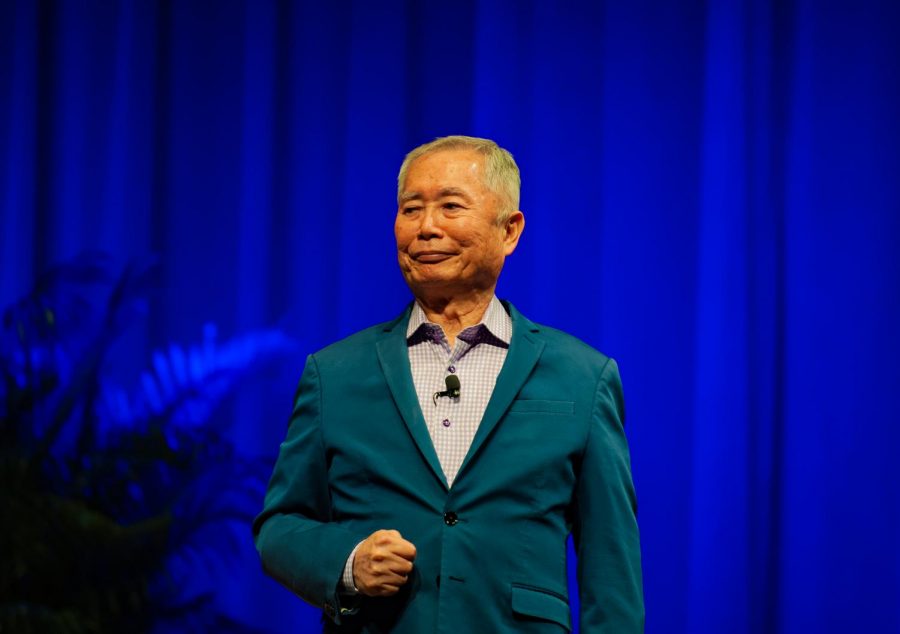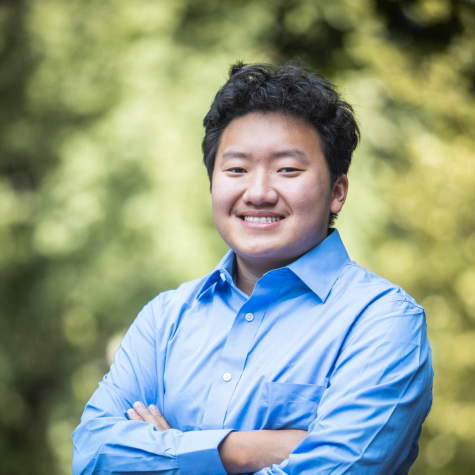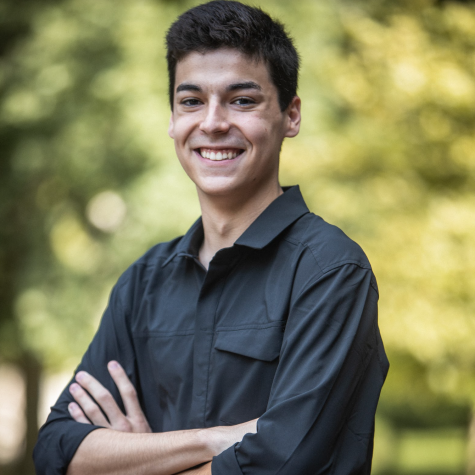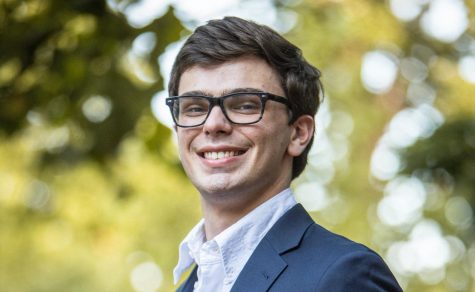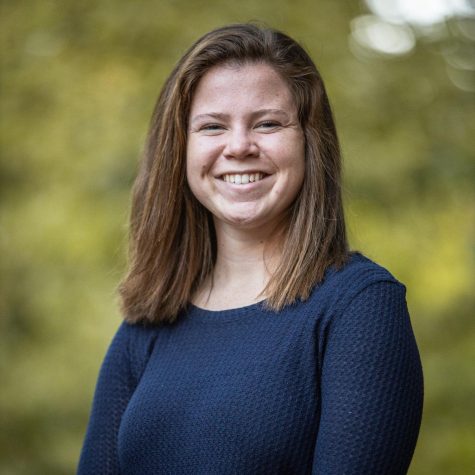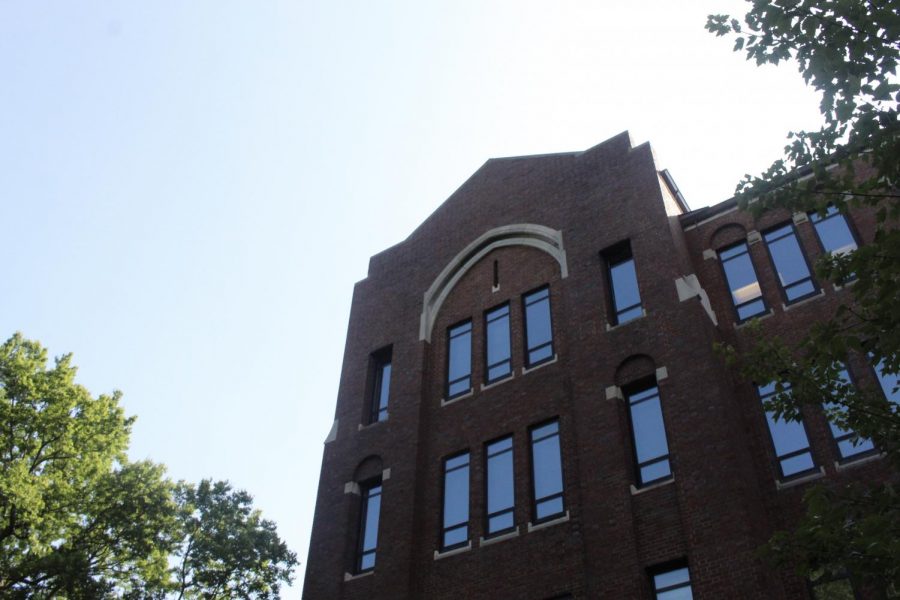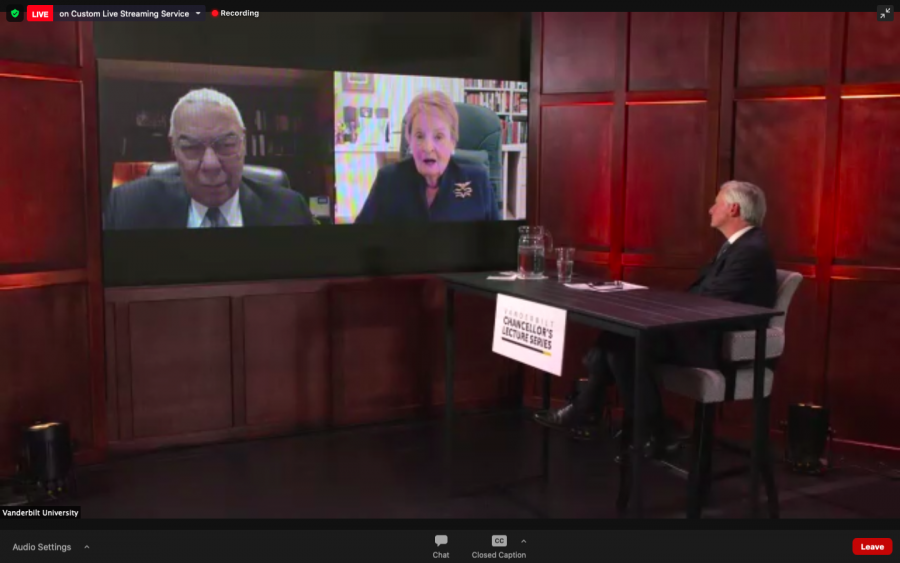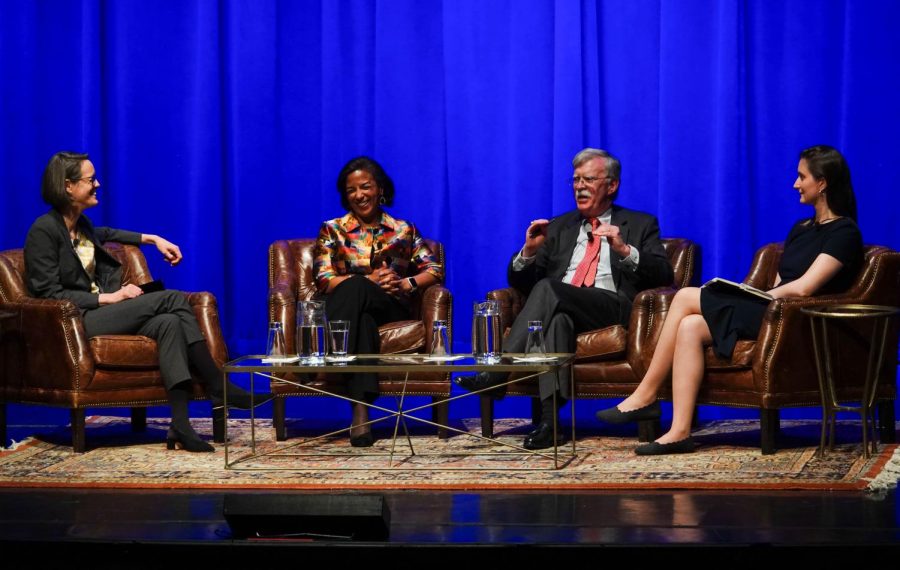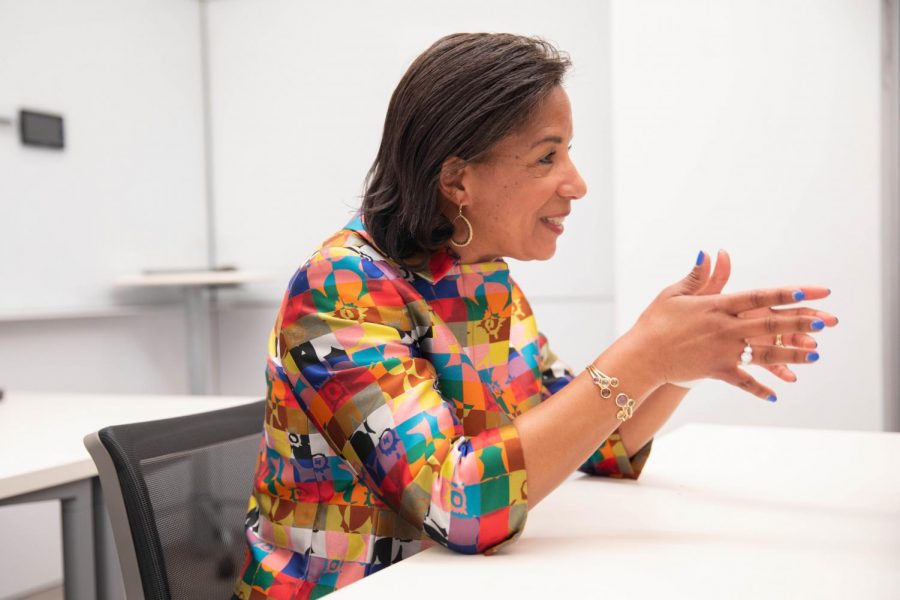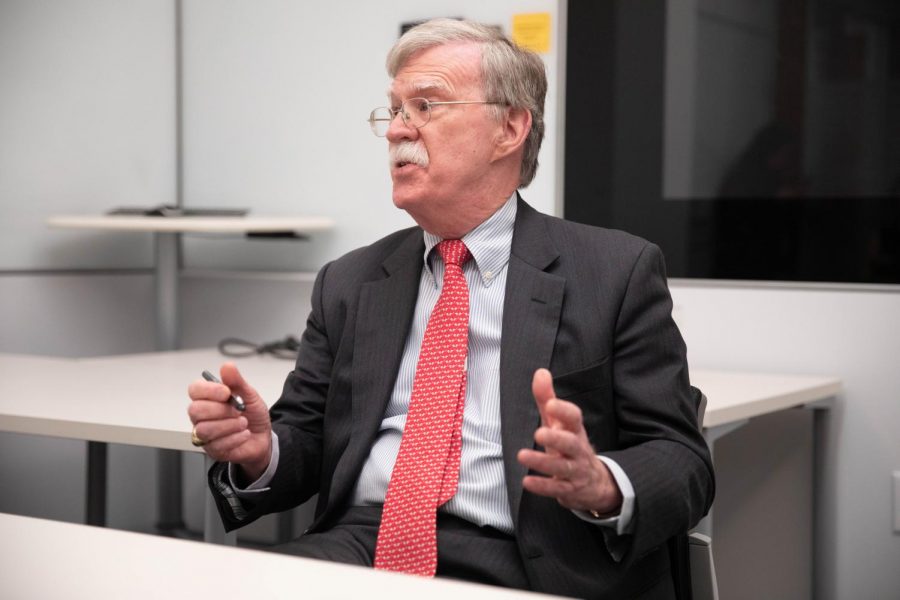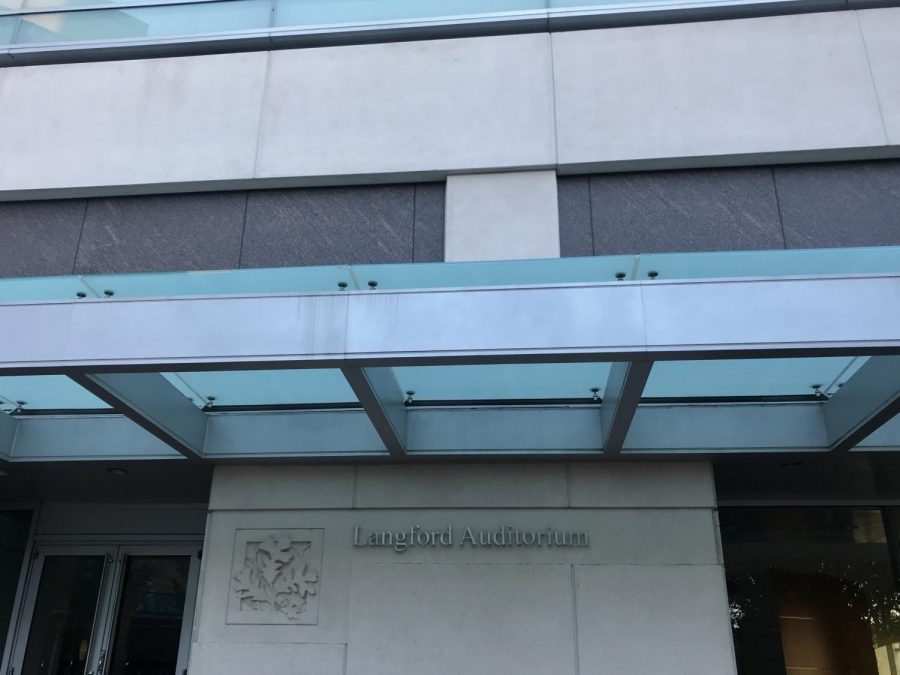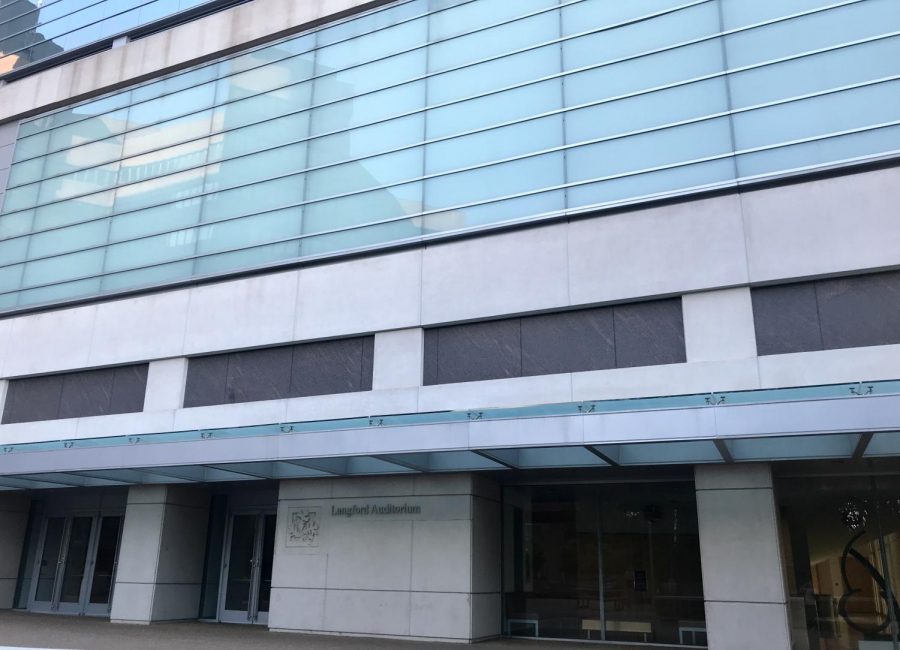George Takei came to Vanderbilt on Oct. 2 as a part of a Chancellor’s Lecture Series event entitled “Reflections on Defying the Status Quo in America.” Following Takei’s lecture, there was a brief Q&A co-moderated by E. Bronson Ingram Chair and professor of economics, Christopher (Kitt) Carpenter, and Asian American Student Association member Alyson Win.
George Takei is best known for his role as Hikaru Sulu in the 1960s science fiction classic “Star Trek.” Takei’s lecture focused on his complex journey of American identity, from his family’s forced internment as Japanese Americans during World War II to his prominent role in the fight for marriage equality in the United States. Takei recently released a graphic memoir entitled “They Called Us Enemy” that discusses his family’s experience during WWII internment.
Vanderbilt Hustler: The opening monologue of Star Trek ends with the famous line, “to boldly go where no man has gone before,” which in many ways connects to the world of activism and the goal of attaining new measures of equality. You are one of the most vocal activists for marriage equality both in this country and around the world. What inspired you to undertake such a prominent role in political and social activism?
George Takei: Well, as a young child, when I was five years old, we were incarcerated. Innocent people who had nothing to do with Pearl Harbor. But Pearl Harbor terrorized the country and it swept across the country. This happened more recently after 9/11 terror carried over into the fear of Muslims, and we wound up with a Muslim travel ban. The same thing happened after Pearl Harbor.
It was a devastating bombing. Over 2,400 U.S. Naval men were killed and more than 1,600 Naval men were injured. They looked at us, and even though we were American, we looked exactly like the people that bombed Pearl Harbor. That terror stampeded everybody, including the President of the United States. He signed an [executive order] ordering all Japanese-Americans on the West coast, all 120,000 of us, to be summarily rounded up with no charges, no trial, to be incarcerated.
I was a young child then. I didn’t understand the horrors of incarceration. My parents were the ones who were subjected to that. As I grew up, I gained a growing knowledge of the injustice. My father — and I consider him an extraordinary man — despite all of the anguish and rage and injustice they had to live through, he got me to understand American democracy. It’s the people’s democracy, and the people can accomplish extraordinary things. The noble ideal of our system: all men are created equal, equal justice under the law. We’re a nation of law.
VH: In a recent interview on PBS you talked about how Japanese parents would not talk to their children about the horrors of internment due to the pain it had caused them. Despite this, your new graphic novel, “They Called Us Enemy,” recounts your family’s experience during Japanese Internment —
GT: It’s not Japanese Internment. That term is the one thing that drives me up the wall. “Japanese internment camps” would be operated by the Japanese government. We were in an American internment camp, ordered by an American president, in the United States. That in no way is a Japanese internment camp. It is an American prison camp.
VH: Why did you decide to write this now, and what lessons do you hope readers take away from your memoir?
GT: I’ve been an activist on many, many issues all my life, and particularly on the issue of the unjust imprisonment of Japanese-Americans. Yet, to this day, I can be chatting with someone I consider well-informed and well-versed, and I share my childhood of imprisonment, and he is shocked. An American, which I consider reasonably educated, is shocked that such a thing has happened in the United States.
I decided that we’ve got to reach the young generation of Americans. The adults are too far gone. The history books now are starting to mention it, but they are beyond reading textbooks. We’ve got to reach young people. When I was a teenager, I loved reading comic strips like Flash Gordon and Green Hornet. At that age, you’re absorbing information through your pores and into your body. Those are the people we want to reach.
We are repeating what happened to us more than 70 years ago. That’s because people who vote don’t know that history. In fact, the man in the White House didn’t know that history. We were doing a musical of the internment of Japanese-Americans on Broadway, “Allegiance,” at the time the candidates were running for the nomination of each of their respective parties. Trump talked about how we need a complete and total ban on Muslims coming into this country. That kind of sweeping generalization is the same mentality that put us in those barbed-wire prison camps.
The stereotype was that we were potential spies and saboteurs. To prevent that, lock them up. “Lock up the Japs!” That was the chant in the early ‘40s. That’s why I wrote it as a graphic memoir, to reach the young voters of tomorrow.
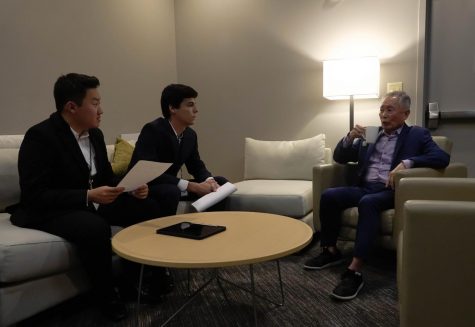
Hustler writers Hoon Kim and Logan Cromeens with George Takei. (Photo by Mattigan Kelly)
VH: In your lifetime, you have witnessed same-sex marriage go from something completely illegal in the U.S. to something protected by the Supreme Court. What work do you credit for this shift in society and what is your assessment of the current state of the LGBTQI community?
GT: I’ve been an advocate for people to actively participate in the political process and I have been an activist. However, through most of my adult life, I was closeted as a gay man. I was protecting my acting career. We could not be hired as actors if it was known that we were gay.
The gay liberation movement began exactly 50 years ago, in 1969 after Stonewall. It was because of the activism of those people that the gay liberation movement began to change people’s minds. But I needed to keep working. That very same year that Stonewall happened, Star Trek was cancelled. I was working regularly year after year up until 1969, when we were cancelled because of low ratings. I needed another job, and I couldn’t come out.
After that, I was still active in all these other issues — the civil rights movement, the peace movement during the Vietnam war, and the movement to get an apology and redress for the Japanese-American community for its unjust incarceration — but I was silent on the one issue closest to me. And here were these people, advocating for my issues, and I was not participating. That burdened me with a heavy sense of guilt. I felt like a hypocrite, talking about other social justice issues and staying mute on the one issue that meant so much to me. And they were doing it for me; they were giving up everything.
Things started to change in 2003. Massachusetts, through the state Supreme Court, got marriage equality. On the west coast, another landmark event: the state legislature of California, the Senate and the Assembly, passed the marriage equality bill. That needed one more signature, of the then governor Arnold Schwarzenegger. When the bill came to his desk, he played to his Republican alt-right conservative constituents and he vetoed it.
I was raging, but I was at home with my then-boyfriend — now my hubby — watching television. The late night news came on, and when they played the governor’s veto story, they cut to the young people pouring out onto Santa Monica Boulevard venting their rage towards the governor’s veto. We felt the same way, we were raging, but we were sitting comfortably at home. So we began a discussion which went on for a couple more days, and we made a decision. I spoke to the press for the first time as a gay man, and I blasted Arnold Schwarzenegger’s veto. And that’s what got me out. Ever since then, I’ve been vocal, visible and active in the marriage and gay equality movement.

